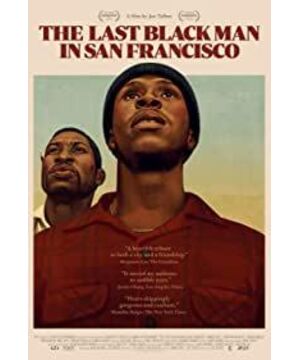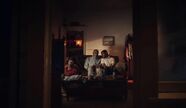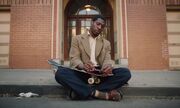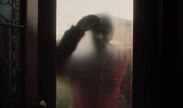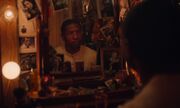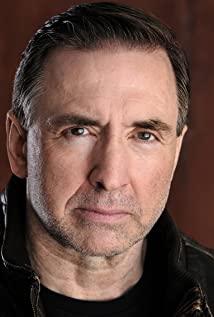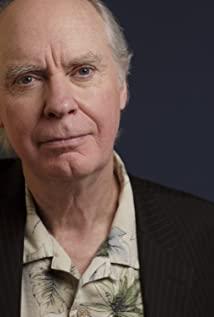【Brief Comment】
This movie is a hit that hits the Oscars. The highlight is not the plot, but the master-level dubbing and picture quality, and of course, there is a solid theme.
For a non-movie-professional audience, although the shooting technique cannot be accurately described, the film does give people a sense of "high-definition oil painting". The silence does not come from the sound effects, but from the pictures. If you look closely, you will find that almost all the background objects are still, not even a bit of wind. The depressive feeling of this solemn atmosphere and the bright colors like oil paintings form an indescribable drama bonus effect, just like The kind and bitter taste of life on the asphalt road in summer.
Finally, use a paragraph to figure out the director’s subtext: "The disgusting business society spreads rapidly like a tumor. No piece of land in the world belongs to any one person, but to money. This thing created by humans is driving it. Human behavior will eventually wipe out the only trace of humanity left in the corner. However, the government turns a blind eye to it, because the government is also made up of people, and it can even be said to be the hardest hit area controlled by money."
【Synopsis】
The film tells a ridiculous story about occupying a house around two black people in San Francisco.
Jimmy and Jonathan are a pair of good friends. Jimmy is temporarily staying at Jonathan's house because he is homeless. During the period, Jimmy has been obsessed with the old house by the Golden Gate Bridge.
The original owner of this old house was Jimmy's family, but because his father was involved in drugs, he lost the family property, and the family was torn apart and ran away separately. According to Jimmy's father, this big house was built by Jimmy's grandfather, and Jimmy believed in this.
By chance, Jimmy learned that the current owner’s mother had passed away. The family temporarily left the house vacant due to a competition for ownership of the house. Jimmy was overjoyed when he heard the news and shipped back the old furniture from his aunt’s house in the suburbs. Moved into this big house voluntarily.
When he was ready, Jimmy invited Jonathan to come and live with him. He also showed off his residence to the people he met, as if it really was his own house. It felt like he finally had his own place to stay.
However, the good times didn't last long, and the housing agency quickly stepped in. Jimmy's unsuspecting lie was exposed. Then Jonathan put on a funny farce in which the historical truth of the house was broken.
The only conviction was stifled. Jimmy was at a loss and returned to his original residence with Jonathan. But at this time, Jimmy had lost his only thought of San Francisco. At the end of the film, he left the city alone in a small boat.
[Depth lens interpretation]
The first in-depth shot is a black man speaking by a polluted river, alone and almost no audience. His classic line is "You can't find the truth about the truth with Google."
Opposite the speaker was a bus stop. The two male protagonists sat on the side of the road and waited for a long time, but no bus passed by. This kind of scenes of waiting for the bus appeared many times in the film.
The series of depictions in the opening seem to be meaningless. In fact, they set the tone for the entire society, that is, with the expansion of white people, the pollution problem on this land has finally received attention, but after you see it, you will find that it is not white people who are kind. It is that they want to take this area as their own. The black people who originally lived here will face deportation, and the way of deportation is not as barbarous as before, but expelled in disguise through high housing prices.
In addition, public transportation in the United States is underdeveloped, especially in black residential areas, where buses can put people to sleep, which also echoes the imbalance of social resources.
With this deep intention alone, the film can score ten points, but because the plot is too boring and the audience is really not wide, it can't give full marks. It would be perfect if it could add some fun like "Green Book".
The second in-depth shot is the scene of two male protagonists and friends watching a low-rent housing demolished from the car. More than one hundred people living here are facing homelessness. At this time, the male protagonist’s friend said The words hit the nail on the head: "They thought this place belonged to them."
When you see this, you have to mention the land policy of the United States. Although a large amount of land is privately owned by the people, you still have to continue to pay property tax and land tax. The annual tax is about 3% of the value of the house. This policy There are pros and cons. The advantage is that the real estate speculators die out, and the disadvantage is that the poor will continue to be squeezed to the edge of the newly expanded city. It is also worth mentioning that the vast majority of such taxes in the United States are used for local education and construction, so residents are still thinking about it. If it is to concentrate taxation to develop large cities, it is estimated that they are not willing to pay taxes.
In fact, Fei Ming has always had a question about land issues. Why is it illegal for the underworld to collect protection fees, and it is legal for the government to occupy land?
The third in-depth lens is the dialogue between the two male protagonists and the real estate agent. The real estate agent himself said that so many people on the street are homeless and many houses are vacant. It is unfair. However, people can only be forced to accept this fact. .
This makes me think of China’s residential occupancy rate. This is a funny indicator. If I have unlimited wealth, can I buy all the houses in the country and make the people of the country homeless?
The fourth in-depth shot is Jimmy standing on the balcony of the old house to explain the history of the house to the visiting team on the street. At this time, the use of a distant view lens highlights Jimmy’s inner pride and love for the house. This love is not only for architecture. There is also a layer of love for this land, love for history, and a sense of honor for the owner of the home.
This scene echoes the following line: "If you don't love it, you have no right to hate it."
The fifth in-depth lens is Jimmy's narrative of the history of the house. According to him, long ago, this was a gathering place for Japanese people. Later, the Japanese who lived here were taken into concentration camps.
This setting seems to explain the origin of the house, but in fact it implicitly embodies the eternal bullying phenomenon. First, the Indians were driven away, then the Japanese were driven away, and now the blacks are being driven away, but in a different way. That's it, in the end they added a sauna to these houses, which became their home.
The sixth in-depth shot shows the two male protagonists watching TV with their blind relatives. They explain the scenes on the TV to the elderly. The elderly combined with the sounds they hear are full of taste. In fact, the happiness they want is nothing more than happiness. It's that simple. A small room of their own is enough for their relatives to get along with each other in harmony. However, because they want too little and have nothing to do with the world, their space is compressed step by step, and in the end they can only squeeze. Together, should people be good or evil?
The last in-depth shot completes the sublimation of the whole film. Whether you understand the movie or not depends on your understanding of the shot. The movie is called The Last Black Man in San Francisco. Who is this black man? In fact, it is the good old man Jonathan.
Jimmy left the city because of his own pursuit. Their friend was shot to defend his tough stance. Only Jonathan stayed.
In this shot, Jonathan sits alone at the bus station, traveling alone on the trajectory of life on the assembly line, still incompetent, still serving the society, not asking for return, giving up his own rights is the price of staying, in fact, think about it, this is not the same. What is the difference between a slave slaughtered by a human?
【Brief Comment】
This movie is a hit that hits the Oscars. The highlight is not the plot, but the master-level dubbing and picture quality, and of course, there is a solid theme.
For a non-movie-professional audience, although the shooting technique cannot be accurately described, the film does give people a sense of "high-definition oil painting". The silence does not come from the sound effects, but from the pictures. If you look closely, you will find that almost all the background objects are still, not even a bit of wind. The depressive feeling of this solemn atmosphere and the bright colors like oil paintings form an indescribable drama bonus effect, just like The kind and bitter taste of life on the asphalt road in summer.
Finally, use a paragraph to figure out the director’s subtext: "The disgusting business society spreads rapidly like a tumor. No piece of land in the world belongs to any one person, but to money. This thing created by humans is driving it. Human behavior will eventually wipe out the only trace of humanity left in the corner. However, the government turns a blind eye to it, because the government is also made up of people, and it can even be said to be the hardest hit area controlled by money."
View more about The Last Black Man in San Francisco reviews


